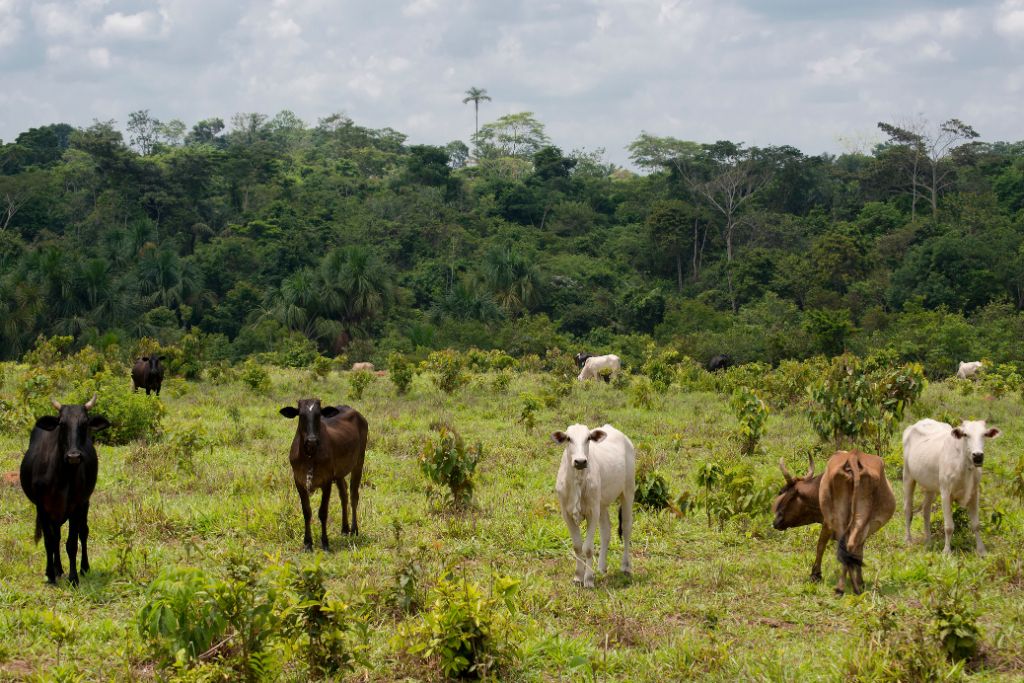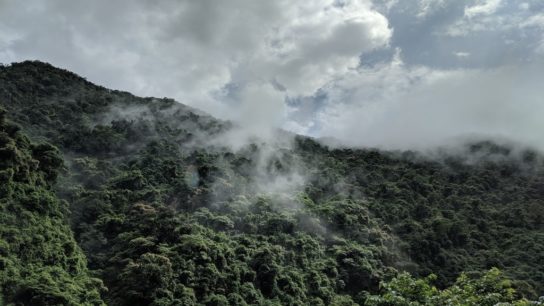If major import markets, such as China and Hong Kong, were to restrict trade to slaughterhouses with more transparent supply chains, industry experts believe it could have a major impact on the sustainability of the Brazilian meat sector.
—
At first glance, there is little to link a handful of featureless Hong Kong office spaces to the world’s largest tropical rainforest. But supply chain data – obtained by non-profit organisation Repórter Brasil and shared with HKFP – reveals that at least four businesses in the city have imported beef products farmed by a man whom Brazilian police have called “the greatest devastator of the Amazon.”
Cattle farming is “the number one culprit of deforestation in virtually every Amazon country,” according to environmental NGO the World Wide Fund for Nature. Roughly 17% of the Amazon rainforest has already been lost to habitat conversion, with trees felled to make way for cattle pastures and the dusty roads that transport Brazilian beef from the forest to the global marketplace.
More on the topic: 10 Amazon Rainforest Deforestation Facts to Know About
Among those profiting from the degradation of the Amazon is rancher Bruno Heller, whose family owns farms that have been fined US$5 million for illegal deforestation, and who has been accused by Brazilian federal police of clearing 6,500 hectares of forest – an area almost five times the size of Hong Kong’s Lamma Island.

Through a process known as “cattle laundering,” where cows raised at illicit locations are transported to those with a clean record, Repórter Brasil tracked cattle from Heller’s family farms to a slaughterhouse, 163 Beef Industria & Comercio De Carnes Ltda, and traced beef products from that slaughterhouse to Hong Kong.
Traceability Without Sustainability
With scarce agricultural land, Hong Kong imports over 90% of its food, all of which is regulated by the Centre for Food Safety (CFS). Imports of meat and poultry from Brazil arrive in the city via processing plants that are recommended by Brazil’s Ministry of Agriculture for approval by the CFS, 163 Beef among them.
Plants must meet “the specific import requirements on food safety principles such as the products shall be fit for human consumption and in compliance with the legislation of the exporting economy and Hong Kong,” a CFS spokesperson told HKFP in late January.
Asked whether sustainability was considered, the CFS said the following month: “Hygienic and humane slaughtering / handling / processing / production / storage and transport should also be observed,” but did not elaborate on how these were assessed.
“Currently, we don’t have many social-environmental requirements in [Brazil’s] international trade,” Marina Guyot, manager of public policy at non-profit Imaflora, told HKFP by phone from Brazil last month.
Last year, the European Union introduced regulations to prevent the importation of products linked to deforestation with the goal of “reducing the EU’s impact on global deforestation and forest degradation.” It targets the import and trade of commodities such as cattle, soy, and palm oil within the European bloc from areas deforested after December 31, 2020, and will come into force at the end of this year.
While the policy was welcomed, it was not expected to have a major impact on demand for Brazilian exports, much of which came from Asia. “[European countries] represent a low amount of our production in terms of what they consume,” Guyot said. “That is around five per cent – five per cent of our exportations, not five per cent of what we produce.”
Hong Kong, on the other hand, has an outsized appetite for Brazilian beef products. Despite its diminutive footprint and population – just 7.5 million people compared to the EU’s 448 million – the city is the world’s largest buyer of Brazilian bovine offal.
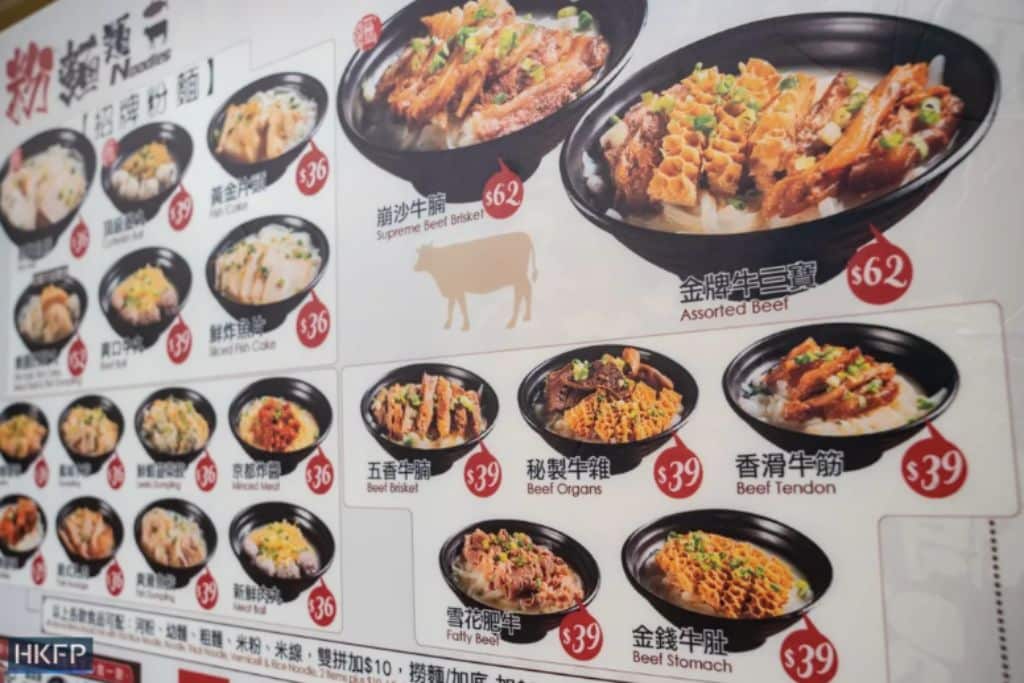
If major import markets, such as China and Hong Kong, were to restrict trade to slaughterhouses with more transparent supply chains, Guyot believes it could have a major impact on the sustainability of the Brazilian meat sector.
In 2022, Hong Kong imported US$253.65 million worth of frozen, edible beef offal and animal guts, bladders and stomachs from Brazil – or 48% of the country’s exports of those products – according to the country’s trade data.
Indeterminate Operations and Origins
According to Repórter Brasil’s investigation, at least four firms registered in the city bought bovine offal such as aorta, omasum and honeycomb from 163 Beef several times between 2022 and 2023. They include Galaila International Company Limited, Harvest Charm Limited, Loyalty Union Asia Limited, and Uni Shining International Trading Co., Limited.

When HKFP visited the companies’ offices late last November, little could be gleaned about their operations. Only Galaila International, located in a tired 1980s office block in Central, and Loyalty Union Asia, which overlooked the city’s main container port from an industrial unit, maintained a visible presence and had their company names on display.
At the addresses of Harvest Charm and Uni Shining International Trading, the former in an unadorned office in a Sheung Wan office tower and the latter in a subdivided industrial space in Tsuen Wan, there was nothing to indicate the businesses actually existed. Uni Shining’s small unit appeared to be occupied by a wedding florist.
Records kept by Hong Kong’s Companies Registry provided no further information about the firms’ activities. Among the four, just Galaila International has a website, which presents it as a leather supplier. The remaining three have no internet presence, social media, or brands.
Requests for comment sent via registered mail and, where possible, emails to all four companies have gone unanswered. An employee at Galaila International said by phone that she would forward the HKFP reporter’s contact details to her boss, but nothing more was heard. The letter to Uni Shining International Trading was “unclaimed” and returned to HKFP.
In 2019, Greenpeace found that nearly a third of Hong Kong’s beef came from ranches located in deforested areas of the Amazon rainforest, and lobbied major supermarkets to stop selling what it called “deforestation meat.”
Several major supermarkets – Aeon, Yata, and City’Super – responded to Greenpeace to say they did not sell or rarely sold Brazilian beef. ParknShop later responded to say that it would switch to other suppliers once its existing stock ran out.
“After years of this campaign… that we can still find this kind of meat in Hong Kong is very sad,” Tom Ng, a campaigner at Greenpeace Hong Kong, told HKFP in late January.
“Hong Kong is one of the largest importers of this kind of meat. We’ve been asking shops to stop importing this, at least from sources that are known to be of concern,” Ng said.
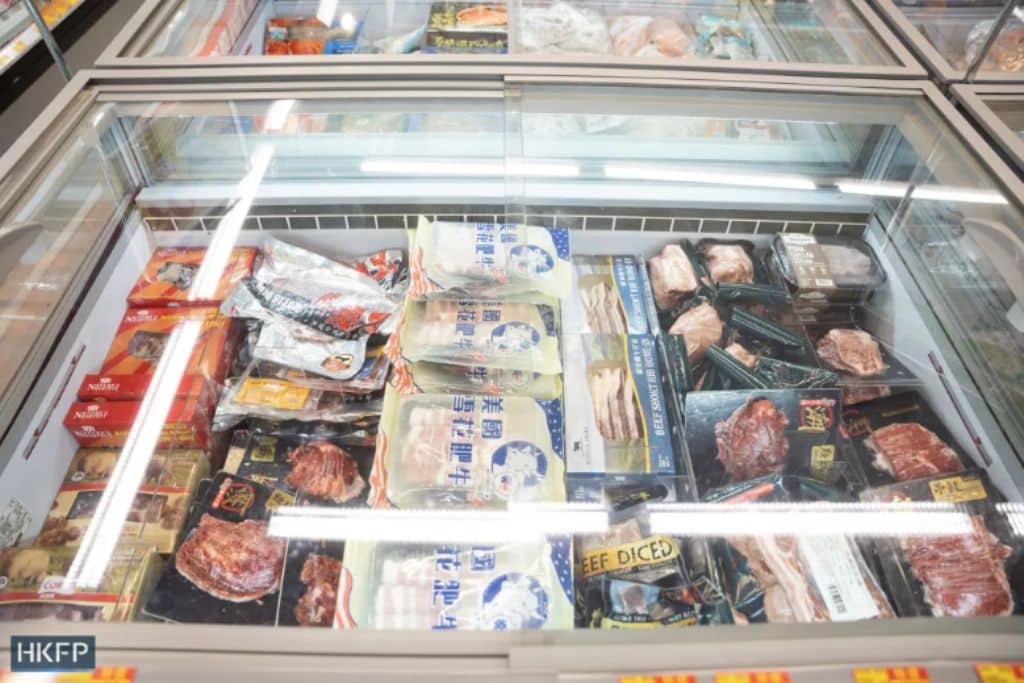
Of the supermarkets checked by HKFP in February, only Wellcome sold beef from Brazil. In an emailed response to enquiries received in early March, DFI Retail Group, which owns the chain, said: “Wellcome’s sourcing complies to local regulations and is committed to sustainable development.”
The group added that it was “aware of the rising discussion on the environmental issues” and was “diligently reviewing our supplier network.”
In 2023, Hong Kong imported 316.7 million kilograms of Brazilian meat products, among which 34.9 million kilograms were “meat of bovine animals” and eight million kilograms were “meat and edible meat offal,” according to data from the Census and Statistics Department.
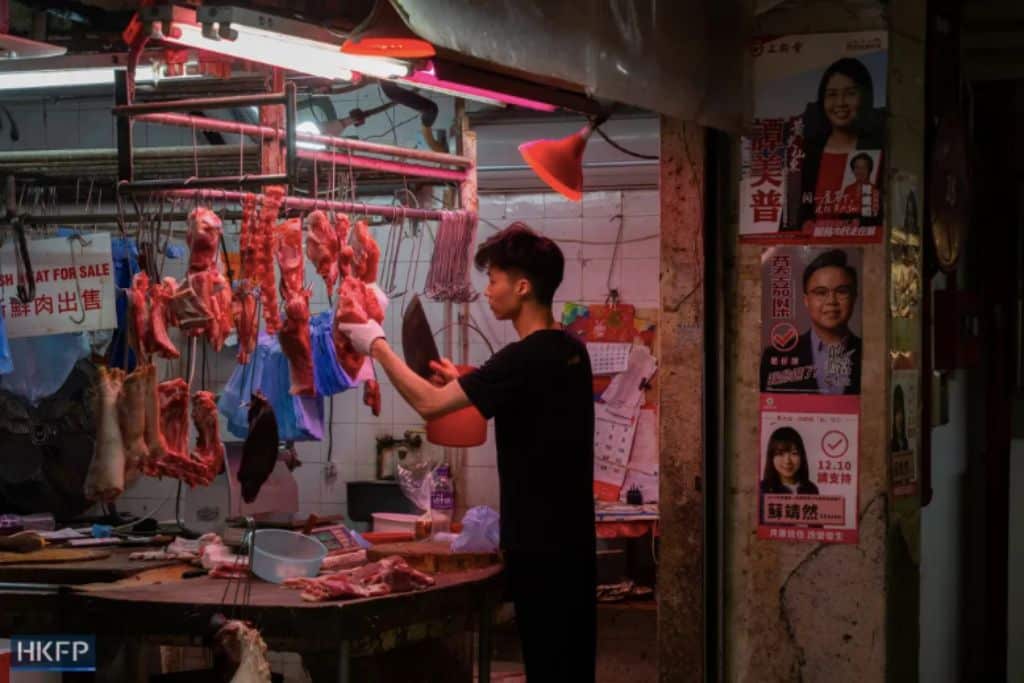
Asked why the demand for Brazilian bovine offal was so high in Hong Kong, Louis Chan, deputy director of research at the Hong Kong Trade Development Council, told Repórter Brasil in February that the city was “world-famous for its open and free trading regime… making Hong Kong a superb trading hub for international products.”
“It goes without saying that Brazilian bovine offal… has [a] good market in Asia, both for direct consumption and further processing by the human food industry, the pet food sector and feed manufacturing for local agriculture and animal husbandry,” Chan said via email.
He also pointed to Hong Kong’s per capita meat consumption rate, which a 2018 study by the University of Hong Kong’s Earth Science Department put at 664 grams per day, “equivalent to two pieces of 10-oz steak,” Chan said.
“This, together with the city’s much hyped reputation as a food paradise, has made Hong Kong a prime destination for South American meat and offal exporters seeking market expansion and diversification.”
Not all of the Brazilian beef products imported by Hong Kong are destined to stay in the city, however. Citing government data, Chan said that US$342 million worth of Brazilian bovine offal was re-exported from Hong Kong – 50.3% of which went to Vietnam, 29.9% to Taiwan and 15.4% to South Korea.
You might also like: How Animal Agriculture Is Accelerating Global Deforestation
Last Stop, China?
Guyot, of Brazilian NGO Imaflora, believes that some of the Brazilian bovine offal that enters Hong Kong has another final destination – mainland China.
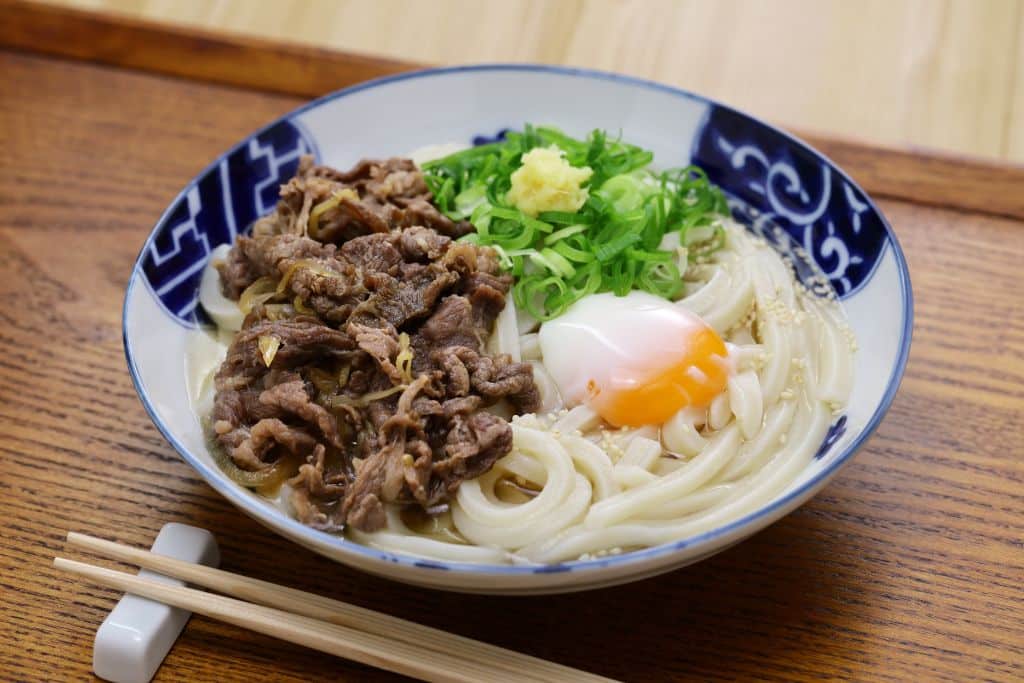
“Hong Kong is not just another consuming country, but also an entry point for China… that is not properly traced,” she said.
Speaking to Repórter Brasil in December, Alcides Torres of Scot Consultoria, one of the largest consultancy firms in Brazil’s meat sector, echoed Guyot, saying “a portion of what is exported to Hong Kong may be redirected to China.”
In 2023, Uruguay, the US and New Zealand were China’s main source markets of bovine offal, according to the World Bank’s World Integrated Trade Solution site. Brazil is nowhere to be seen, because the General Administration of Customs of China has not approved exports of such products from the country.
For meat products to be re-exported from Hong Kong to mainland China or Macau, the CFS requires an “official health certificate issued by the place of origin clearly stating that the Mainland/Macau is the final destination of the consignment.” While Macau is the third-largest re-export market for Brazilian bovine meat and edible meat offal from Hong Kong, mainland China does not appear on the list.
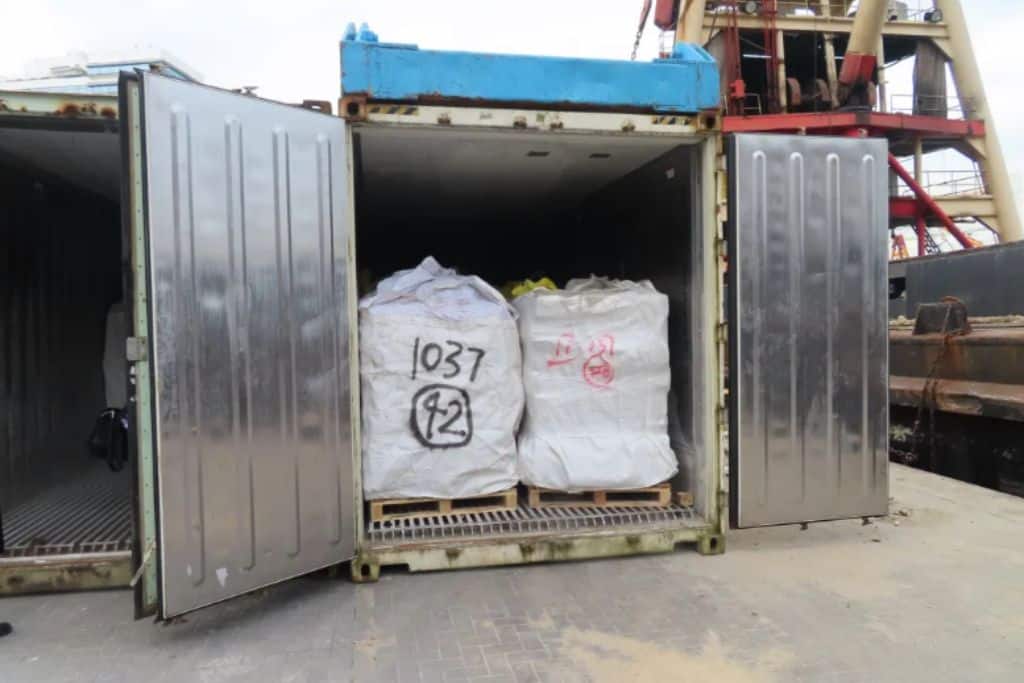
During the pandemic, when Hong Kong’s border was firmly sealed, including from its neighbour to the north, instances of suspected meat smuggling between the city and mainland China rose. In September 2021, marine police anti-smuggling operations made headlines when an officer drowned during an anti-smuggling operation.
Suspected smuggling activity peaked in 2022, when police seized 403 tonnes of frozen meat from smugglers worth an estimated HK$61 million, arresting 46 people in the process. According to local media reports at the time, Brazilian offal was among the types of meat intercepted.
Police figures provided to HKFP showed that such seizures fell last year, with 52 tonnes of frozen suspected smuggled meat with an estimated value of HK$11 million intercepted in just four cases.
Demand-Side Pressure for Sustainability
Without increased pressure for social and environmental traceability measures, it is unlikely that Brazilian beef products from illegally deforested areas of the Amazon rainforest will disappear from plates in Hong Kong, or elsewhere in the region.
Lei Yu-ting, a freelance researcher for Greenpeace East Asia, told Repórter Brasil by email in February that awareness of meat sustainability among Hong Kong consumers was “rising slowly.” But, he added, “it’s not substantial [enough] to bring changes to consumption behaviour and industrial supply chain.”
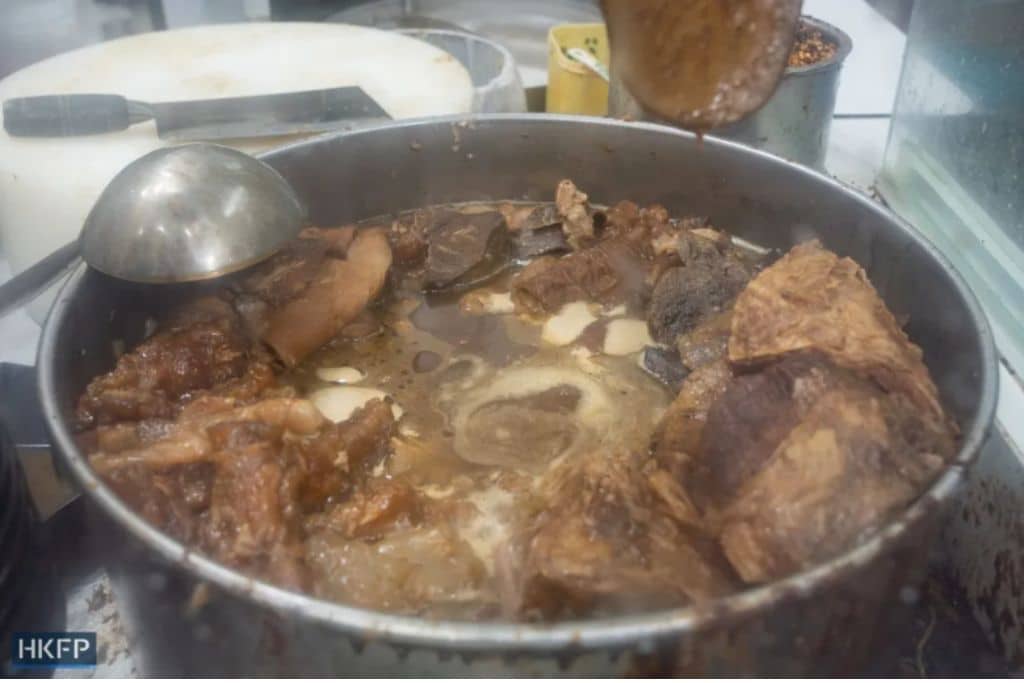
Additionally, “when consumers in Hong Kong think about meat sustainability and traceability, it’s more in regard of the meat quality and food safety,” Lei said. “It’s hard for consumers to tell whether meat consumed is associated with land destruction and deforestation in Brazil and other countries.”
Ng, from Greenpeace Hong Kong, added that – while public pressure was one thing – policy change was preferred. “Transparency and traceability is a very important thing that requires all parties to work on it,” he said, naming the government, schools, NGOs and the media as having a role to play in educating people about how their meat consumption may be linked to deforestation, too.
“I don’t know if it is possible for any government policy or corporate policy that can ban this type of product,” Ng continued. “That is something we wish to have.”
At Brazilian NGO Imaflora, this is something Guyot and her colleagues are working towards. In collaboration with Brazil’s public prosecutors’ office, the organisation has established a monitoring system called Beef on Track, with the aim of establishing a supply chain free from “socio-environmental irregularities,” such as the deforestation of indigenous land and slave labour.
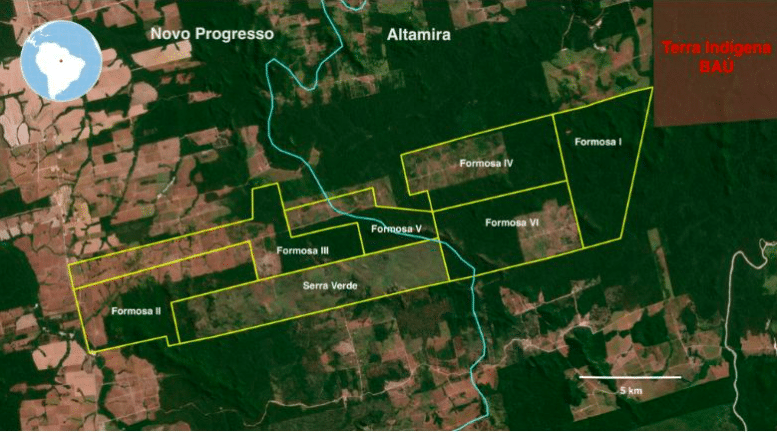
Of 158 slaughterhouses in the Brazilian Amazon, 110 are signatories of the Beef on Track protocol, which requires them to ensure that direct suppliers comply with human rights and sustainability criteria. Because of the way the cattle industry is structured, it is not a perfect system as it only applies to final-phase suppliers that sell directly to the slaughterhouse, but it is a start.
163 Beef, the slaughterhouse at the centre of Repórter Brasil and HKFP’s investigation, bought cattle from farms related to Heller and his family more than 20 times between 2018 and 2023, according to official documents, and sold bovine offal to the four Hong Kong firms. It has not signed on to the monitoring system, and did not respond to requests for comment.
Heller sent a statement via a lawyer engaged to defend him and his daughter Tatiana, which said: “they are a family group that has held peaceful, undisturbed possession of the family rural property located in the state of Pará since the 1970s.”
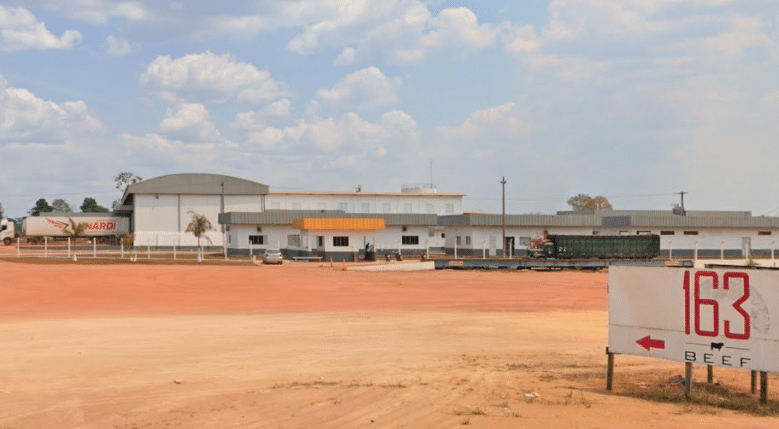
The statement added “the facts discussed in the ongoing investigation are confidential,” although it is not clear which investigation is being referred to.
For plants like 163 Beef and perhaps farmers like Heller to believe there are benefits to ensuring a socially and environmentally friendly supply chain, Guyot believes it would take demand-side pressure from the likes of Hong Kong.
“We are engaged… to try to promote green trade between China and Brazil, and of course Hong Kong,” Guyot said. “Having a sign-off coming from China and Hong Kong would be very positive in terms of an incentive for the companies and industry here to adopt this protocol.”
This article was originally published on Hong Kong Free Press, written by Mercedes Hutton and Piero Locatelli, and is republished here as part of an editorial partnership with Earth.Org.








